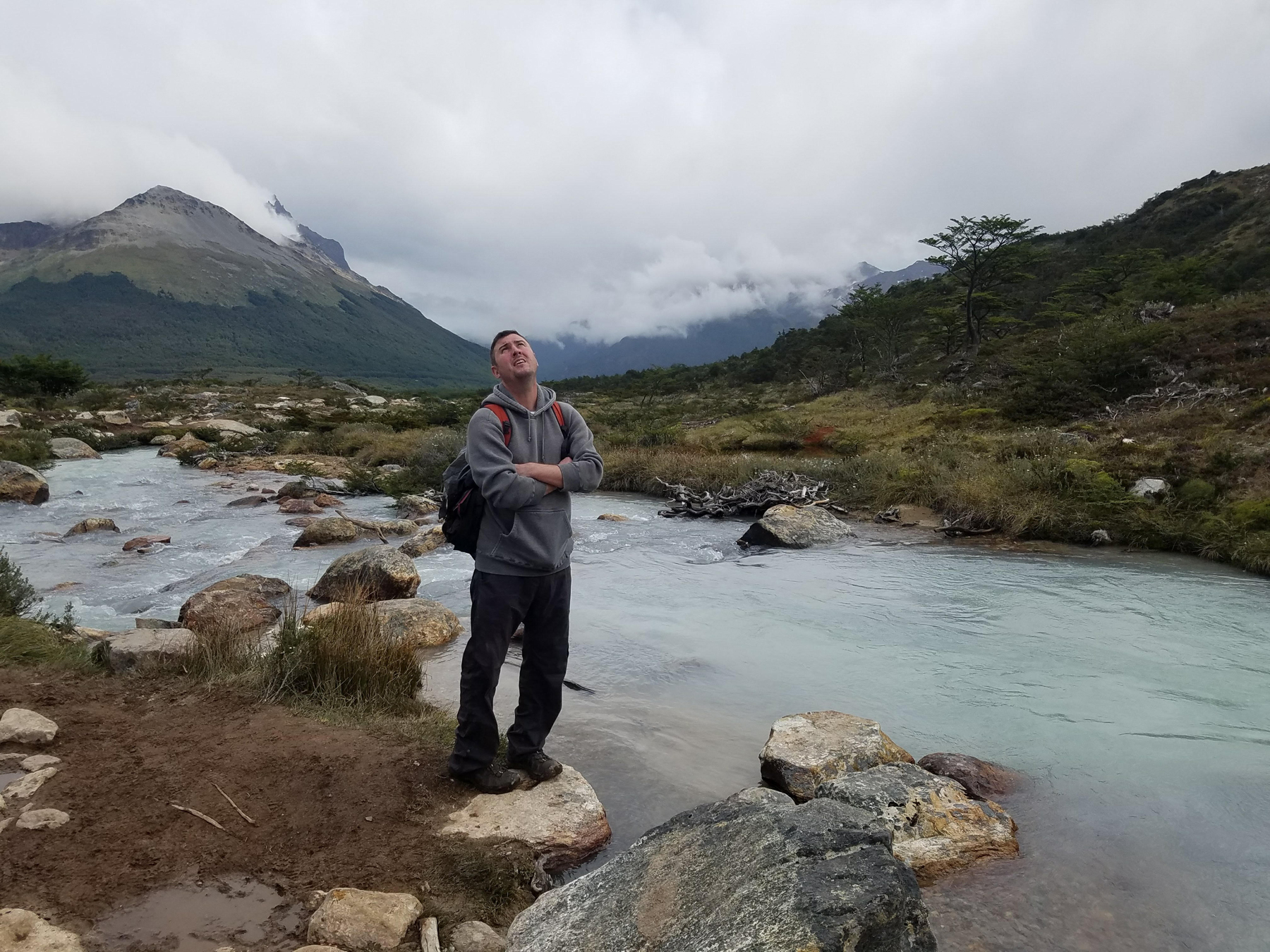Rutgers undergraduate meteorology program has sent a student to the National Center for Atmospheric Research’s Undergraduate Leadership Workshop since its inception in 2002. Despite COVID-19, this year was no exception as SEBS student Sean Parker attended the virtual workshop, representing an unbroken record of participation for 18 years, says Steven Decker, associate teaching professor and director of the Meteorology Undergraduate Program in the Department of Environmental Sciences.

Sean Parker (SEBS’21), pictured at Lake Esmeralda in the Patagonia region of Argentina.
Sean Parker shared with Newsroom a first-person account of his experience in the one-week national leadership conference organized by NCAR.
This summer, I was fortunate enough to be admitted to the National Center for Atmospheric Research’s Undergraduate Leadership Workshop (NCAR ULW.) This annual workshop is focused on enhancing the leadership skills of students majoring in atmospheric science and meteorology.
As a Rutgers student pursuing a degree in meteorology, I worked together with 19 student peers from universities across the country. Traditionally, students have spent two weeks at NCAR headquarters in Boulder, CO, but this year, due to COVID 19, the conference was conducted virtually. The focus of the ULW is to provide a diverse group of students with the tools needed for advancing into leadership positions in the field.
For four hours per day, over the course of one week, the virtual workshop covered many relevant topics. I found the most value in the topics of Diversity, Equity and Inclusion, listening, leadership style and sourcing. The workshop kicked off at a time when many protests were taking place across the country. As future leaders, we have a responsibility to address uncomfortable topics and practice the skills needed to help us in bettering communities. The students who were selected to participate in the workshop were from different ethnic and social backgrounds with 16 of the 20 students being female.
We were introduced to different styles of listening and how important listening is when working with a team. One’s ability to communicate effectively is strongly dependent on their ability to listen and understand the reasons behind the “why.” Listening aids in enabling teams to collectively achieve success and growth. Science requires time, big picture thinking, strategic thinking and teamwork to achieve large goals of bettering society. As a leader, you need to take the time to bring out the potential of the team.
Another focus in the workshop was being able to recognize what type of leader I am, what types of power there are and when to use them. There are many different leadership styles that can be brought to and used in different situations. To help recognize what type of leader I am and what type of leader others are, we incorporated listening skills and asked questions like: What type of questions do I ask and what do I pay attention to? Answering these questions helps improve communication with members of your team and with sharing information with people who are not in the field.
Information and where it is sourced is very important, even more so now with the vast amount of information out there. Finding valid sources of information is essential in the scientific process. There is no room for spreading false and biased information. The work we do is for the betterment of society and should not be manipulated to achieve personal gain. We have a moral obligation to share the truths in our discoveries. This is why we must have a process where information is validated and corrected as new discoveries arise.
These are just a few of the many important topics covered over the course of the week. There are many careers to explore in the field of atmospheric science and this was demonstrated by workshop alumni joining us to share their career paths. Leadership skills are very important in our field of study. Coupled with effective communication skills, we can improve technologies and make discoveries that can improve how we hold stewardship of our planet.
I would like to thank Rutgers and the Meteorology Program for nominating me for the NCAR ULW. It is an experience that I will carry with me. The NCAR ULW is open to students in their junior year in the fields of Meteorology and Atmospheric Science. I encourage all who are interested to reach out to their department or visit the National Center for Atmospheric Research Undergraduate Leadership Workshop website.

